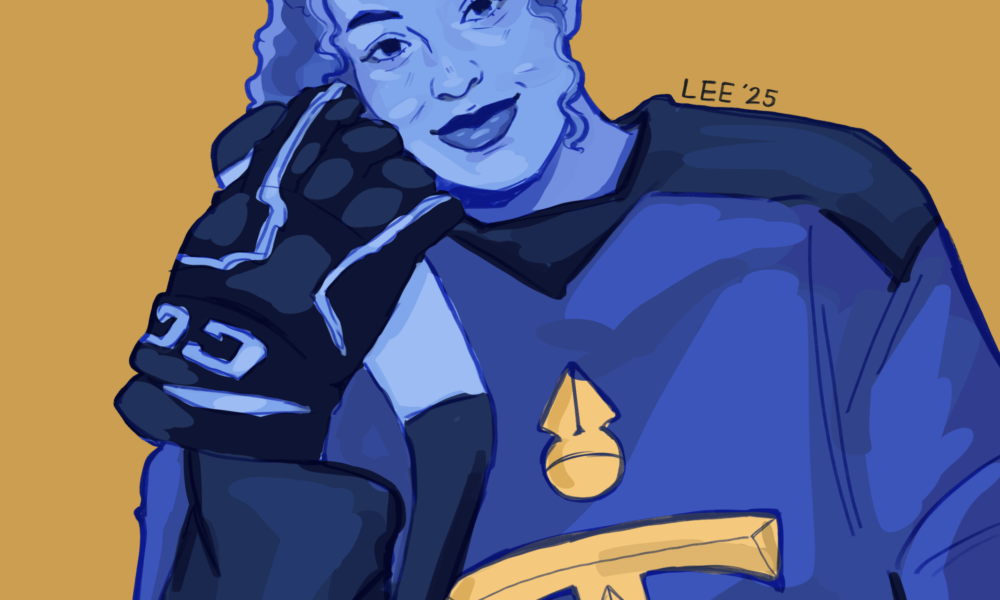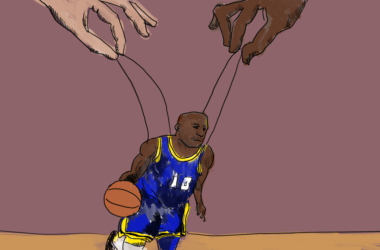Black athletes have consistently pushed boundaries in both sport and civil rights to further opportunities for others. In many cases, the success or popularity of a sport can largely be attributed to the hard work and dedication of Black competitors. It is especially crucial to recognize the contributions of these trailblazers during Black History Month, to fully acknowledge their impacts. Alongside the modern superstars growing their respective sports, it is equally important to thank past athletes who may not have been as popular or well-known during their time, but whose advocacy has led to greater opportunities for modern Black athletes.
Kingston, Ontario’s Aaliyah Edwards may only be a 22-year-old rookie, but she has proven that she can hang with the best. The sixth overall selection in last year’s WNBA draft by the Washington Mystics, Edwards was Team Canada’s youngest player at the Tokyo Olympics at 18 years old, and was a two-time U.S. Basketball Writers Association All-American during her time at the University of Connecticut. Her community in Kingston remains incredibly important to her. This past summer, she ran a co-ed basketball development camp in Kingston intended to inspire young hoopers across the province. The camp helped athletes realize that their basketball dreams may be reachable.
Some athletes have the chance to shine, only to have the opportunity to compete on the world stage swept out from underneath them. What sets them apart is how they respond. While Canadian Sports Hall of Fame inductee Barbara Howard’s time in the spotlight may have been short, her 40 years off the track are the greatest part of her lasting legacy. Howard first gained attention when, in a time trial, she set a mark in the 100-yard dash that was good enough to break the Commonwealth Games record.
In 1938, Howard became the first woman athlete of colour to represent Canada in an international sporting competition. However, she never got the opportunity to compete again, as the Second World War derailed plans for future competition. Undeterred, Howard returned to Vancouver to teach at an elementary school for four decades. She continued to break barriers, being the first member of a visible minority to be hired by the Vancouver School Board.
Sarah Nurse has become one of the biggest hockey superstars in the nation. A decorated forward with two Olympic medals and five World Championship medals for Team Canada, Nurse is a dominant force for the Toronto Sceptres in the Professional Women’s Hockey League (PWHL). Few athletes can claim as much responsibility for their sport’s success as Nurse. As the creator of the Professional Women’s Hockey Players’ Association, Nurse was part of the team that founded the PWHL itself, an incredible achievement. She then joined the executive committee for the league’s labour union, advocating for her fellow PWHL athletes.
Like Nurse, Angela James had no equal on the ice. The current crop of PWHL stars owe much of their success to James, a women’s hockey pioneer. In a time when women’s professional hockey leagues were few and far between, James showed her true dominance on the international stage. She won four World Championships as the team captain, and was one of the first three women to be inducted into the Hockey Hall of Fame. In her international career, James recorded 33 goals and 21 assists for a total of 54 points. She was inducted into the Order of Hockey in Canada in 2021.
These athletes should be lauded for their continuous efforts to grow women’s athletics across the board. Their influence in their sports, coupled with their advocacy away from the playing field, makes them perfect role models for young athletes. James and Howard did not receive nearly enough attention in their playing days, and their inductions into the Canadian Sports Hall of Fame show a renewed effort in ensuring that their legacies are preserved forever. For Nurse and Edwards, their work away from competition may be the most important aspect of their careers, and should be given an enormous amount of credit for being a driving force in the popularity of women’s sports.









